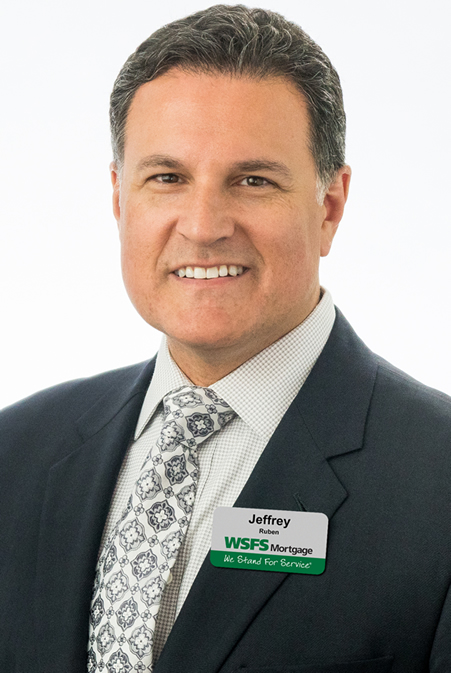Last month, Northeast regional lender WSFS Mortgage released the results of a survey that measured reverse mortgage product sentiments. It found that more people seem to be aware of the potential value that a reverse mortgage could provide for older homeowners, including as a tool to age in place and to provide greater cash flow in retirement.
Despite the more regional focus of WSFS Mortgage’s reverse mortgage offerings — which offers the loans through its brokerage — the survey itself was conducted nationwide with a research company enlisting responses from 750 homeowners at or over the age of 60.
To get a better idea of what motivated the survey and its desire to learn more about reverse mortgages, RMD sat down with WSFS Mortgage President Jeffrey Ruben.
The education gap
The reverse mortgage industry has long made serious investments in educational programs, particularly when looking at the efforts of current and former major lenders in the space like Finance of America Reverse (FAR), American Advisors Group (AAG) and others. In terms of what motivated the company to conduct the survey, Ruben describes a perceived disconnect between the utility of the product category and its reputation.
“The ‘aha’ moment was really validating an assumption we had going into it, that there is this large education gap,” Ruben said. “Whenever there’s a chance to educate and let people know how this product works, [the industry] all about it, and that’s where we are as well. We feel that as a product, it suffers from a lack of information and a lot of misinformation. I think the survey bears that out.”
When asked if it is aiming to use the survey results to inform future plans with the reverse mortgage product, Ruben said that the company has a nearly 200-year old history and had been more involved in reverse mortgages in the past, but not since he joined the company roughly a decade ago.
Population trends
WSFS did in fact have a national reverse mortgage-focused subsidiary, 1st Reverse Financial Services, but elected to wind it down and shutter it in 2009. Since Ruben joined the organization, reverse mortgages have not been a major focus of the company, he said.

“Since I’ve been involved, I’ve stepped back and looked at our depositor base. We’re based in Wilmington, Delaware, we service the tri-state area of Pennsylvania, New Jersey, Delaware and some of Maryland,” he said. “And if you look at that population group, it’s an older group of Americans and our deposit base reflects that as well.”
However, Ruben describes being surprised at a generally low level of reverse mortgage activity he has seen since becoming involved, and thought about engaging in an exercise that would allow for a clearer understanding of whether or not reverse remained a viable business path for the company.
“We thought we weren’t successful in getting the word out about this product and how it can be used,” he said. “It’s not for everyone, but it definitely should be something that is in the offering, and that people can make an informed and educated decision about. Our motivation was to look at our population base, and to look at the values of homes. We have an aging population, and it just seems so ripe to make sure that our older Americans are aware of this option and this program.”
Maintaining a regional focus, program changes
Despite the results of the survey indicating more understanding of the utility of reverse mortgages, Ruben said the company has no immediate ambitions to progress beyond its regional focus brokering reverse mortgages to investors. But he didn’t completely shut the door on the prospect for the future.
“It sounds cliché, but we do like to walk before we run,” Ruben said. “We want to be able to learn how this product is going to be received. It is a much safer and financially less impactful decision to broker initially, but as we get more and more knowledge we do feel that it is a product that we could bring in-house at some point if the conditions are correct and we are comfortable with the program.”
The company will also keep an eye on the regulatory environment, and any potential changes that the U.S. Department of Housing and Urban Development (HUD) or the Federal Housing Administration (FHA) may choose to make to the Home Equity Conversion Mortgage (HECM) program, he said.
But the involvement of the HECM program’s stewards likely helps what could be a delayed process of recognition for the HECM product due to its age restriction, he said.
“When the government came in and started setting a real good guideline foundation for this product, I believe it caught and continues to catch interest,” he said. “It’s not fully adopted, but more and more financial advisors who are working with individuals in retirement planning are starting to recognize the value and the potential opportunity for a reverse mortgage to help with that retirement cash flow, which is usually the main goal of a successful retirement plan.”
A lack of product awareness is giving way to people who are starting to think in longer terms about their financial futures, Ruben has observed.
“I see even in our own bank, younger people today are really focused on a 30-year and 40-year plan for when they retire someday,” he said. “So, I think it will become a tool and a financial instrument that people will learn about earlier in their life, today and in the future.”